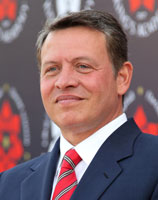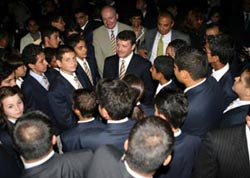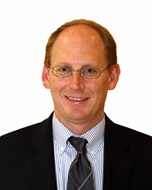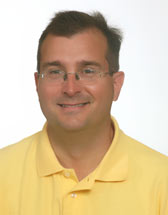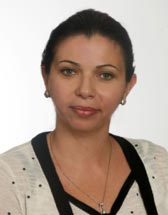Jordan’s Bold Educational Experiment
By Meg Korpi and Rusty Wright
Amid continuing Middle Eastern political and social unrest, a quiet revolution is taking place in Jordan that could help reshape the future of that nation and the region. It is a revolution not of guns or violence, but of character and mind—and it was started by King Abdullah himself.
Nestled in Jordan’s western desert outside Madaba, King’s Academy is a boarding school modeled after Abdullah’s own prep school experience at Deerfield Academy in Massachusetts. Amid green lawns, courtyards and sand-colored—if not ivy-covered—walls, blue-blazer-and-khaki-clad students flourish in an intellectual oasis unique in the Middle East. For the past five years, King’s has been redefining education for leaders of the next generation in Jordan and other countries around the world.
Critical Thinking and Academic Rigor
In a region where traditional education focuses on rote memorization, King’s teaches students not what to think but how to think. According to Headmaster John Austin, “We…teach for engagement, not just content knowledge.” To foster independent critical thinking, classes emphasize question-asking, curiosity and respectful dialogue. Evidently they’re succeeding. The school received international accreditation after only four years, and has sent graduates to top universities like Harvard, Yale, Stanford and others.
Character Matters
The school’s Guiding Principles emphasize not only learning but character traits like empathy, respect, responsibility, service, stewardship and balanced living. Austin says classroom instruction plus the residential environment—where students engage peers and faculty daily—are uniquely designed to foster the “most important qualities that a student needs to navigate life: honesty, perseverance, resilience, discipline, care and compassion for others, intercultural competence.”
Global Understanding
What sets King’s apart from similar schools, and could serve as a model for 21st-century education worldwide, is the “remarkably diverse” student body and the extraordinary learning opportunities that provides. According to Austin, the school seeks to graduate students “who are going to flourish in life because they’ve learned how to live in community with people who are very, very different from themselves.”
Thirty percent of students are international, representing 26 nations and five continents. By royal decree, almost half receive financial aid, ensuring economic diversity. Co-education is assumed. Muslims and Christians predominate, but international students bring many religious backgrounds. “It’s education beyond the classroom,” says Austin. “The kids learn as much from one another as they actually do from their teachers in a school like this.”
The climate of diversity, respect and intellectual curiosity merges with classroom instruction to also broaden students’ horizons. Curriculum dean and history teacher John Leistler described introducing the Holocaust in class—a sensitive topic in a predominantly Muslim region. As he acknowledged potential discomfort with the subject, a Jordanian student responded, “but we have to talk about it.” Later, that young man lived down the hall from an Israeli student at their New York college. Though his background predisposed the student not to like Israelis, he was more comfortable with that situation, Leistler believes, because of engaging such themes at King’s.
Ethics, the Arab Spring and Rich Opportunity
Mariam Al-Attar heads the Ethics, Philosophy and Religion Department, and teaches cultural heritage along with critical thinking. Her World Religions course covers Hinduism, Buddhism, Islam, Christianity and Judaism. Speakers of different faiths often present on their own religions.
Her ethics class discussed civil disobedience and the Arab Spring. Some students are revolutionaries, Al-Attar observes, eager to see change. Others prefer gradual change and express concerns about leadership gaps that could bring chaos. Austin agrees that students are “incredibly interested and invigorated by [the Arab Spring] … If you’re a North American looking at the Arab Spring, it’s an interesting intellectual question…. If you’re a student [from] Syria, you have a completely different point of view on what’s happening.”
I [Meg] confess to envying the rich opportunities offered by King’s. When I learned of their “Arabic year” program (a chance for foreign students to study the Arabic language and culture in situ), I longed to be back in high school; I’d apply in a heartbeat. King’s education might be summed up in an ancient saying from this region: “Wisdom is sweet to your soul. If you find it, you will have a bright future, and your hopes will not be cut short.” May wisdom gained at King’s provide many bright futures in the Middle East and beyond.
Meg Korpi studies character development and ethical decision-making through the Character Research Institute in Northern California. She holds a PhD in Education from, and formerly taught at, Stanford University.
Rusty Wright is an author and lecturer who has spoken on six continents. He holds Bachelor of Science (psychology) and Master of Theology degrees from Duke and Oxford universities, respectively. www.RustyWright.com
Copyright © 2012 Meg Korpi and Rusty Wright
# # #
Editors: Note pictures below. For more pictures, inquire here.
